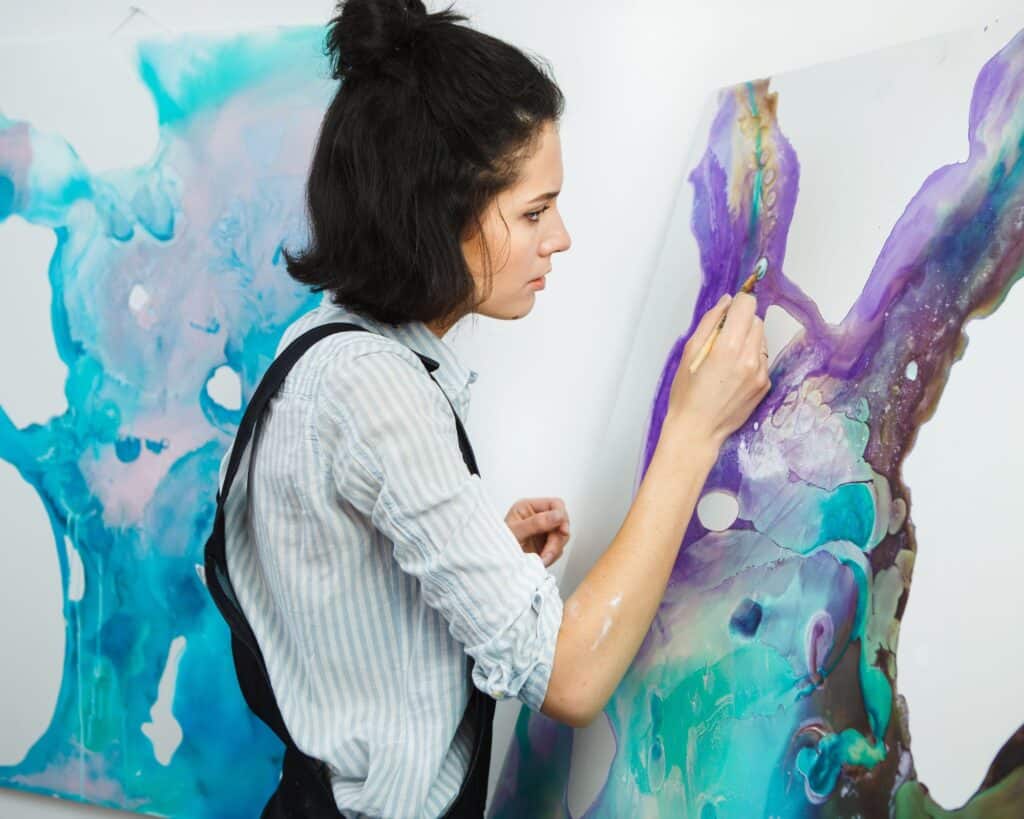Art therapy is one of the many treatment methods Malibu Detox incorporates to address addiction and recovery. Art therapy has become integral to our substance abuse treatment programs to increase self-esteem, allow emotional release, and encourage creativity.
What is Art Therapy?
Art therapy can be a valuable part of the recovery process for those struggling with substance abuse or mental illness. When used as a complementary technique alongside traditional counseling methods, the creative process in an art therapy session can increase your self-esteem while you release stress and tension. There is a distinct difference between using art in therapy and art therapy itself. Utilizing art in therapy generally refers to using art as a means to an end. On the other hand, art therapy centers around the creative process as a therapeutic tool.
Art therapy uses expressive arts to create an outlet for patients to express their emotions, improve their self-esteem, manage their addictions, reduce stress, and improve symptoms of anxiety and depression. Through a variety of art forms such as ceramics, painting, sketching, and more, clients can convey ideas, emotions, feel empowered and explore problems in a non-verbal way of communication. This is highly beneficial for topics clients feel hesitant about addressing in traditional talk therapy sessions such as individual or group therapy.
What To Expect In Art Therapy?
When participating in art therapy sessions, your art therapist will guide you on creating art with a specific message, or you will have free rein to paint, draw, and create a visual guide for your emotions. Art therapy is often integrated into support groups, talk therapies such as group therapy or individual therapy, and other recovery services to encourage healing from drug abuse and alcohol abuse.
The art therapists at our facility aren’t aiming to shape clients into award-winning artists or prepare them for a career in visual arts. You don’t need any artistic talent to flourish in art therapy – the only prerequisite you need is an open mind and willingness to participate in the program.

Common Art Therapy Topics and Techniques
There are a variety of techniques used in art therapy, all with an intent to use art to work through the addiction recovery process. Below are a few examples of art therapy techniques and practices that may take place during a session:
The Life Journey
This exercise involves the patient drawing or painting major life milestones in a timeline form from birth to the present moment. It is a way to use creative expression to look at both the good and bad moments of life and provide a moment of reflection. There may be guided prompts from the art therapist to assist with the creative process.
Self-Portrait
Self-portraits can be a way to show others how you view yourself. This exercise can be done in a series using different prompts for each portrait. By the end of the series, the participant will be able to reflect on themselves with acceptance, empowerment, and accomplishment.
Incident drawings encourage patients to draw or paint a memory of an incident that occurred during a time of substance use. These memories can help patients understand part of their attachment to drugs or alcohol.
Themed Collages
Art pieces such as collages are excellent mediums for depicting emotions. Participants may be given a theme such as fears, hopes for the future, ideal happiness, and others. They will then piece together a collage using magazine or newspaper clippings and other objects that can be easily attached to the collage. For those who have difficulty starting from a blank page, this can be a good tool as it involves identifying photos or images that already exist and placing an established connection to the emotion the image invokes.
The Benefits of Art Therapy for Addiction Treatment
gmaFinding the right words to adequately convey our emotions during the healing process can sometimes be challenging. With art therapy, our substance abuse patients get the chance to connect with their feelings on a deeper, more meaningful level through non-verbal communication. As a result, art therapy promotes emotional healing and self-expression in unique ways.
Art therapy works particularly well as part of a comprehensive treatment plan. We have seen firsthand that art therapy can have an added benefit in the recovery process when combined with cognitive behavioral therapy, dialectical behavioral therapy, motivational enhancement therapy, and motivational interviewing. The benefits of art therapy for substance abuse include:
- Reduces symptoms of anxiety and depression
- Provides an outlet to process traumatic events and release painful emotions
- Enhances self-expression and emotional intelligence or emotional awareness.
- Allows those with substance abuse-related trauma to have the creative expression to process memories of traumatic events
- Fosters creative process expression and allows for the development of new coping skills in recovery.

Art Therapy for Addiction Treatment at Malibu Detox
At Malibu Detox, we believe integrating expressive arts isn’t just a creative outlet for our clients — it’s important to their recovery. Unlike many other addiction treatment centers, we incorporate practices ranging from art therapy and mindfulness to traditional behavioral and cognitive therapy and so much more.
Our art therapy sessions allow clients to tap into their inner selves and express emotions that may have been suppressed by substance abuse. This can be especially beneficial for those who struggle with verbal expression or find it difficult to open up in traditional therapy settings.
Start Healing From Drug and Alcohol Addiction Treatment Today
At Malibu Detox, we believe that recovery is a holistic process and we strive to provide our clients with the tools they need to achieve long-term sobriety. Our goal is to empower individuals to lead fulfilling lives free from addiction.
If you or a loved one is struggling with substance abuse, please reach out to us today for more information on our art therapy services and how we can help you start your journey toward healing. We accept most major and private insurance plans and will work with you to navigate your coverage to minimize out-of-pocket expenses. Our admissions staff looks forward to speaking with you.






